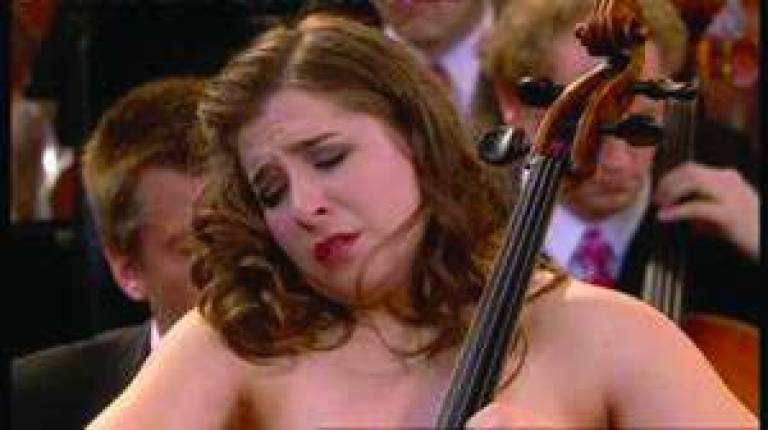Storm Warnings: Notes on Ades' Opera and Alisa Weilerstein

By Jay Nordlinger Philip Glass and John Adams are the most famous living classical composers (if you don't count John Williams). Who would be next? Possibly Thomas Adès, the Brit. His opera The Tempest is maybe the most acclaimed opera of recent years. And it has been playing at the Metropolitan Opera. The composer himself conducts. I have long known him to be a very fine pianist. On the night I attended The Tempest, he proved a more than adequate conductor. He knows the score, obviously. But he had his head rather buried in that score-or so it seemed from my seat. Shakespeare's play is magical and otherworldly, and an operatic treatment of it ought to be the same. Adès is largely successful in this regard. The opera begins with a storm, as does Otello. What is it about Shakespeare beginnings and storms? Personally, I found it hard to adjust to Adès's musical language. The notes on the stage did not seem to match the notes played in the pit. The singers' notes struck me as indeterminate, almost random. But there is a variety of music in this opera, and the score ultimately wins you over, I believe. Britten's treatment of A Midsummer Night's Dream is at times Debussyan, and so is Adès' Tempest. It is both Brittenesque and Debussyan, we could say. Yet Adès is his own man, compositionally. There is humor in this opera, a streak of scherzo. Ariel is a coloratura soprano, with her music way up in the ether. Some of the most moving music is given to Caliban, a freak treated with sympathy. The Met's production is by Robert Lepage, best known for Cirque du Soleil, and known, too, for the Met's latest Ring. His Tempest goes with the story and the score. What more can you ask of a production? This Tempest looks a little like The Enchanted Island, the Met's baroque pastiche, which debuted last season. Prospero is Wotan-like-walking around grave and troubled, bearing a staff. Supertitles, or rather, subtitles, are flashed at the bottom of the stage. At intermission, a friend of mine said, "It ought to be that way for all productions!" I agree-but what about those who would prefer to do without titles? In the cast are many worthy singers, of whom I will mention just two. Young Alek Shrader has a beautiful, fresh, graceful tenor voice. Catch it before it changes, as voices must. His character is Ferdinand, over whom his family is in despair, because he is missing. I wanted to call out, "Don't worry, he's with Isabel Leonard!" This extraordinary mezzo has the part of Miranda, and on the night I heard her, she sang with her customary intelligence and poise. Plenty of composers have written operas based on The Tempest, including Lee Hoiby, the American who died last year. Shakespeare is still a force in the artistic world-almost dominant-four centuries on. In the first week of November, the Chamber Music Society of Lincoln Center presented a concert involving three musicians: a pianist, a violinist and a cellist. The first two were okay. Competent. The cellist was something else: a great artist, no less. When she began to play, the evening took on a different character altogether. She was Alisa Weilerstein, and she played the Chopin Sonata. About her technique, there is no concern: She can do whatever she likes. For example, she can widen or narrow the "ribbon" of her sound. And she has all the colors. Most important, she has an innate sense of music. She knows how to breathe, how to sing, where to put accents. She grasps the "soul" of the music at hand. This is probably unteachable (although a student can be encouraged). She plays with tremendous confidence, as well she might: She has everything to be confident about. Weilerstein is a young woman, and when she is old or planted, she will be recognized as one of the greatest cellists we have known. In truth, she has been that for several years now. Don't be a Johnny-come-lately or bandwagoneer: Recognize this today. A final word, about Chopin: If he had not composed all those marvelous piano pieces, would we ever hear his cello music or his songs? I don't think so. Odd, how the inspiration did not transfer over.